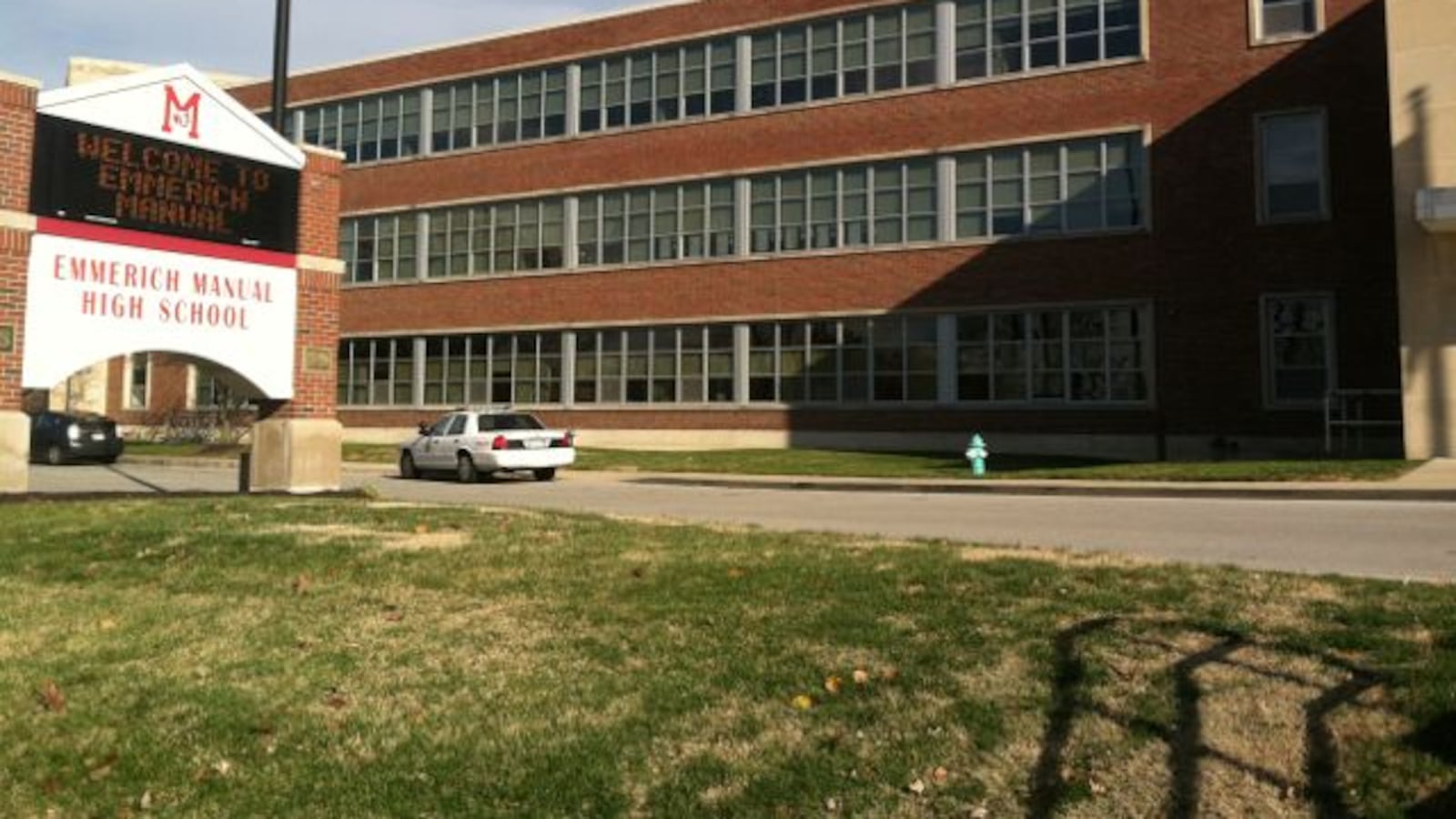Lawmakers will try to answer one of the great unsolved mysteries of Indiana’s education policy next month: What happens to a school taken over by the state at the end of the five-year contract signed by an outside group brought in to manage it?
Five persistently failing Indiana schools — four in Indianapolis and one in Gary — were removed from school district control and handed off to be run by companies and non-profit groups in 2012. But while state law lays out a step-by-step process for how state takeover begins, it is silent about what happens next.
Sen. Pete Miller, R-Avon, this week proposed a solution that could return the schools to the school districts they came from. But a provision that already has raised concerns would also allow the Indiana State Board of Education to turn those schools into charter schools, forever severing them from their former districts.
“Converting to a charter is not an option included in state law now,” Miller said. “I felt the Indiana State Board of Education should have that option.”
Miller’s proposal was added this week to Senate Bill 205, which is mostly aimed at adding rules to charter school contracts. The bill passed the Senate Education Committee 12-0 and is headed for a vote in the full Senate next week.
The option for the state to remove a school from district control is part of Public Law 221, passed by the legislature in 1999. The law requires the state to intervene when a school reaches six consecutive years of F grades under Indiana’s A to F grading system.
That happened for the first time in 2011 with seven schools. Under the law, public hearings were held on each school before the board considered five intervention options:
- Revising the school’s improvement plan.
- Merging the school with a higher scoring school.
- Following the Indiana Department of Education’s recommendations to assign a “lead partner” organization to offer specialized assistance, such as teacher training or data analysis.
- Following options proposed at a public meeting, including closing the school.
- Initiating state takeover.
Two of the schools, IPS’s George Washington and Broad Ripple high schools, were assigned lead partners under the third option. Five others — Gary’s Roosevelt High School along with IPS’s Emma Donnan Middle School and Manual, Howe and Arlington high schools — entered state takeover.
An outside group was brought in to run each school. For-profit companies took over at four schools: Tennessee-based EdisonLearning at Roosevelt and Florida-based Charter Schools USA at Donnan, Manual and Howe. Tindley Accelerated Schools, a non-profit charter school operator based in Indianapolis, took over Arlington.
Each group signed a five-year contract with the state board, including a “transition year” to start, during which the companies only observed and planned for the first year of takeover. The contracts are now in their third years and expire at the end of the 2015-16 school year. Last year the schools made modest progress on test scores. All were once again rated F by the state.
Despite the specific process laid out in Public Law 221 for how school could end up in state takeover, the law was missing something big — what happens at the end of the takeover contract.
“Lots of folks have recognized that we need to talk about this,” Miller said. “We never put in an exit strategy.”
A 2012 bill would have put takeover schools in their own category as “independent” schools with charter-like rules allowing them to be permanently separate from their former school districts. But that bill did not make it to a floor vote.
This year’s Senate Bill 205 instead gives the state board three options:
- Return the school to the school district.
- Convert it into a charter school.
- Revisit the five options in Public Law 221.
The third option could allow the state board to renew its contract with the takeover organization, or make other choices like closing or merging the school or assigning a lead partner.
Libby Ciezniak, IPS’s statehouse lobbyist, said the takeover schools should ultimately return to the district.
“There’s always been a lot of uncertainty about this, but they’re still IPS schools,” she said.
While takeover schools are managed with IPS oversight, the district still owns and maintains the buildings and grounds. Permanently reassigning district-owned real estate to an outside group would be complicated, she said.
IPS also wants to know more about how the takeover schools would be evaluated at the end of their contracts and what factors would decide if they return to the district or not. Senate Bill 205 is not specific enough, Cierzniak said.
It states: “In making a determination under this section, the state board may consider all relevant factors, including overall performance of the school corporation and the special management team.”
IPS wants to know exactly what “relevant factors” will be considered.
“The approach taken in the legislation seems to make sense,” she said, “but we’d like to know the criteria.”

